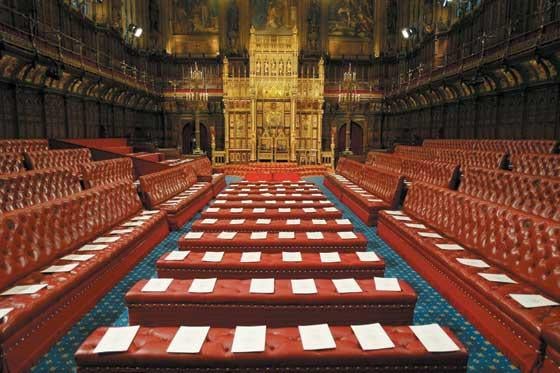
A legal bid to force the BBC to disclose an internal report on its coverage of the Middle East was given a massive boost by the House of Lords today.
The Law Lords held by a 3-2 majority that a case brought by lawyer Steven Sugar under the Freedom of Information Act was wrongly blocked by legal rulings at earlier court hearings.
The case now returns to the High Court for further argument before a final decision is made.
Sugar, a commercial solicitor from Putney, south west London, argues that the 20,000-word report by senior news editor Malcolm Balen should be published as part of the debate about a perceived anti-Israeli bias at the BBC.
The BBC contends that, under the Act, it is exempt from disclosing information held for the purposes of “journalism, art or literature”.
It argues that the report was always intended as an internal review to help shape future policy on its Middle East coverage and was never intended for publication.
Sugar initially took his complaint to the Information Commissioner, who agreed with the BBC that, although it is named as a “public authority” under the Act, it should not have to disclose material relating purely to its journalism.
Sugar appealed and won the backing of the Information Tribunal.
The BBC took the case to the High Court, where a judge concluded that the tribunal had no jurisdiction because the case fell outside the scope of the Act. The Court of Appeal upheld that conclusion.
But today the Law Lords held that the tribunal did have jurisdiction and that the case should be remitted to the High Court for a decision on the other issues raised in the BBC’s defence.
Balen was commissioned in 2004 to compile the report on the BBC’s Middle East reporting, which had been criticised for alleged anti-Israeli bias. He examined hundreds of hours of television and radio broadcasts.
The High Court and Court of Appeal upheld the BBC’s contention that it was a “hybrid” authority and that, in its capacity as holder of journalistic material including the Balen report, it was not a “public authority” and therefore not subject to the provisions of the Act.
Today, Lord Phillips said it was quite wrong to treat Sugar as having made a request to the BBC other than in its capacity as a public authority simply because of the nature of the information that he was requesting.
The question of whether the BBC was obliged to disclose the Balen report to him depended on whether it was journalistic material excluded from the scope of the Act.
That issue would now have to be resolved in an appeal by the BBC to the High Court against the Information Tribunal’s decision in his favour.
Lord Hope and Lord Neuberger and Lord Phillips of Worth Matravers agreed in allowing Sugar’s appeal.
Lord Hoffmann and Baroness Hale said they would have dismissed the appeal.
Email pged@pressgazette.co.uk to point out mistakes, provide story tips or send in a letter for publication on our "Letters Page" blog
